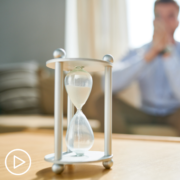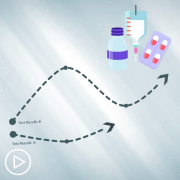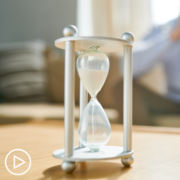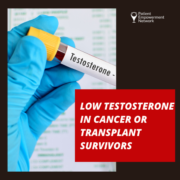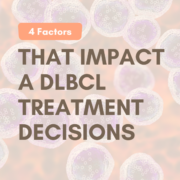Concerned About CLL Watch and Wait? Start Here
Concerned About CLL Watch and Wait? Start Here from Patient Empowerment Network on Vimeo.
What do chronic lymphocytic leukemia (CLL) patients need to know about watchful watching? Expert Dr. Ryan Jacobs explains the CLL tests and symptoms he monitors during watch and wait or active surveillance.
Dr. Ryan Jacobs is a hematologist/oncologist specializing in Chronic Lymphocytic Leukemia from Levine Cancer Institute. Learn more about Dr. Jacobs.
Download Resource Guide | Descargar Guía en Español
Related Programs:

|
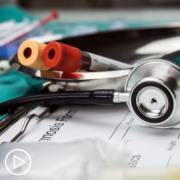
|
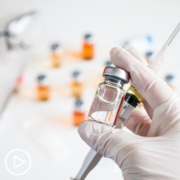
|
Transcript:
Lisa Hatfield:
So I just want to take a step back and kind of looking at this through the lens of a newly diagnosed CLL patient. You’d mentioned that sometimes you don’t treat every CLL patient. So is there something, if you find a patient who does not need treatment, is there something you tell the patients as far as regular monitoring? Will you monitor them to see if it progresses to the point where it requires treatment?
Dr. Ryan Jacobs:
Yeah. And we’re fortunate that this is a blood cancer that most of the time we can follow with a simple blood count and follow the white count, follow how the…follow the health of the bone marrow by looking at things like anemia, low red cell count, or a low platelet count that we call thrombocytopenia.
So that’s the easiest thing to follow, but I’m also talking with my patients and examining my patients. I want to know if their lymph nodes are causing them a lot of pain, because we should treat that, there’s no reason they should live in pain. I want to know if they’re waking up drenched in sweat all the time, if their quality of life has been really affected by that or a dramatic amount of fatigue that we can’t explain by some other cause. And I also, of course, examine the nodes myself and make sure that there are no alarming findings there. So that’s really what’s involved with checking on a CLL patient that’s on active surveillance, that’s what we call it. And there’s a list of criteria that the oncologist should know in terms of deeming who needs treatment and who doesn’t. And so we’re kind of following the same rules, so to speak, in terms of who gets treated for CLL.
Share Your Feedback
Create your own user feedback survey

